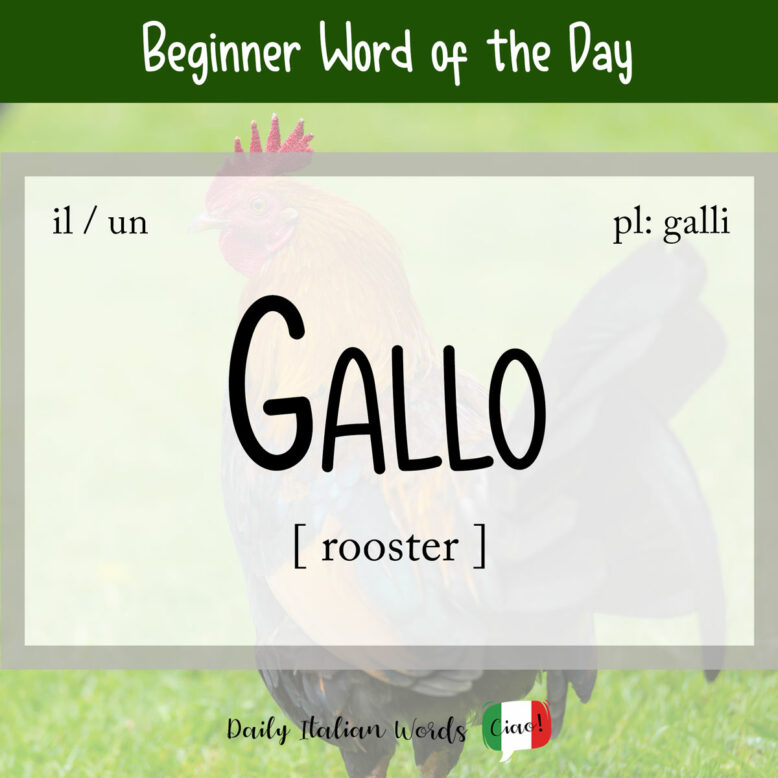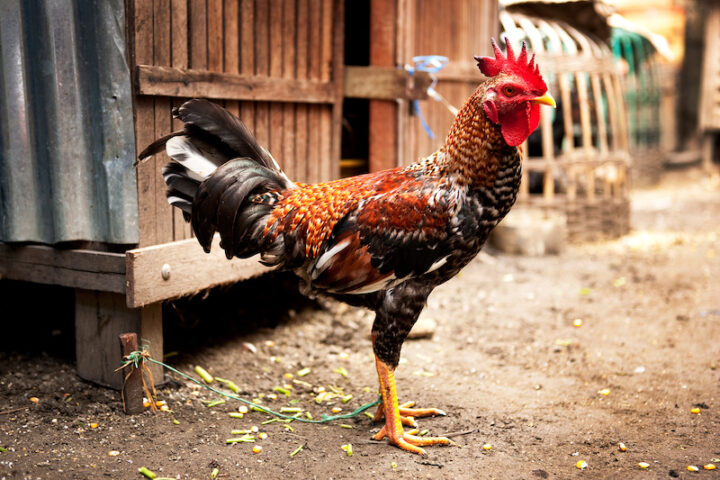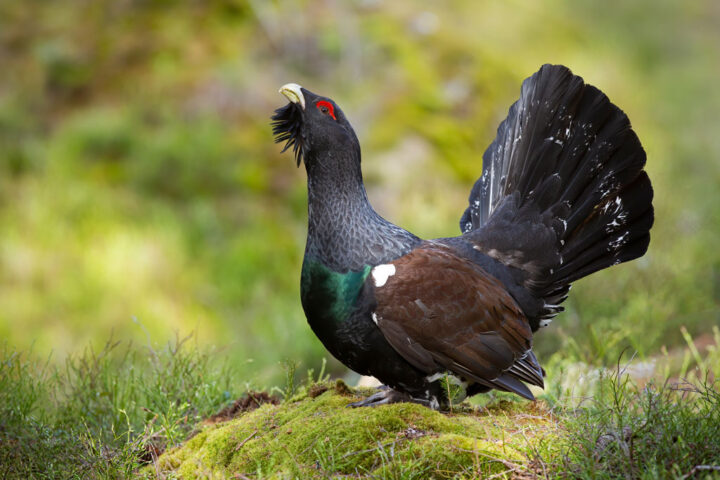The male counterpart to a gallina (chicken / hen) in Italian is a gallo (masculine, plural: galli). It comes from the Latin word gallus.

Some of the most distinctive characteristics of the rooster are its red crest (cresta), dangling wattle (bargigli), puffed-up tail (coda) and most importantly, its crow (canto) which is represented by the onomatopoetic cock-a-doodle-doo in English or chicchirichì in Italian. Have a listen to the children’s song Il Mio Galletto Chicchirichì (My Little Rooster Cock-a-Doodle-Do) to hear the pronunciation!

The way a rooster struts is reminiscent of an overconfident man, walking around with a puffed out chest. It is from this image that Italians get the expression fare il gallo (lit: to do the rooster), which is used to describe a man who swaggers, flirts, or acts like a Casanova.
Quel ragazzo fa il gallo con tutte le ragazze del quartiere.
That young man flirts with all the girls in the neighbourhood.
A similar expression is essere il gallo della Checca (lit: to be the rooster of Checca), which is one way of saying lady-killer or Don Juan in Italian. It comes from the lyric opera L’elisir d’amore by Gaetano Donizetti where the following line is sung:
“Il gallo della Checca tutte vede e tutte becca.”
“The rooster of the Checca sees every woman and pecks every woman.”
Trivia: in boxing, the category bantamweight translates as peso gallo (lit. rooster weight) in Italian (max. 118 lb or 54 kg). The supergallo (lit. super rooster) is super batnamwieght, the next level up (max. 122 lb or 55 kg).
Roosters are often portrayed as crowing at the break of dawn, though in actual fact, they can and will crow at any time during the day! Whether it’s true or not, don’t be surprised to hear the expression alzarsi al canto del gallo (lit: to wake up with the crow of the rooster) in reference to someone who wakes up at the crack of dawn.
Il gallo canta al mattino presto, prima del sorgere del sole.
The rooster sings early in the morning, before sunrise.
Did you know that…?
Another bird with the name gallo is the Gallo Cedrone, which translates to western capercaillie or wood grouse in English. Gallo cedrone is also the title of a popular film directed and interpreted by comedian Carlo Verdone.

Heather Broster is a graduate with honours in linguistics from the University of Western Ontario. She is an aspiring polyglot, proficient in English and Italian, as well as Japanese, Welsh, and French to varying degrees of fluency. Originally from Toronto, Heather has resided in various countries, notably Italy for a period of six years. Her primary focus lies in the fields of language acquisition, education, and bilingual instruction.


